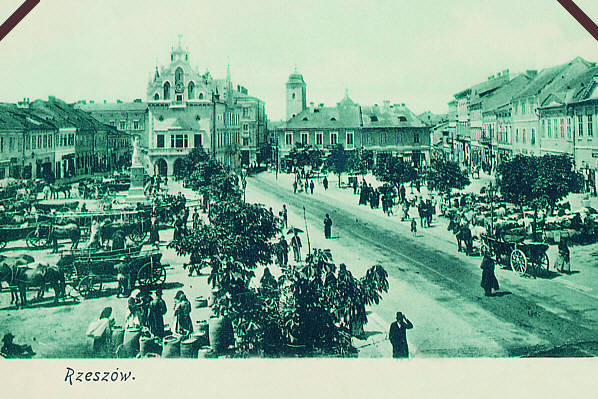Until recently, it was thought that the birthplace of the famous American director of Jewish origin, Fred Zinnemann (1907-1997), was Austria. Meanwhile, in 2021, a Rzeszów resident Anna Bochenek published his biography, containing different information on the subject. The author confirmed earlier speculations that the director of ‘High Noon’ was not born in Vienna, as he assured everyone, but in Rzeszów.
Zinnemann was born into an intelligentsia family that had lived in Rzeszów and its neighbourhood for generations. His father Oskar was a doctor in private practice. He studied in Vienna, while his grandfather worked as a bookkeeper on his mother’s side and made soap on his father’s side. The Zinnemann family lived in Rzeszow’s Market Square at number 3.
Unfortunately, it has not been possible to find any documents that could be a reliable source of information about Fred’s Rzeszów period. We do not even know which school he attended.
It is presumed that during the First World War, as a result of the turmoil, the family had to leave the troubled city of Rzeszów and travelled to Vienna, which Fred’s father knew from his studies. The Zinnemanns liked the city so much that they settled there for a long time.
In Vienna, the future director studied law, but in 1929, against his parents’ wishes, he emigrated to the United States. He had previously studied cinematography in Paris. Zinnemann described his departure from Austria as “an escape from zombie land”. In the USA in 1937, he began working for the then well-known Metro-Goldwyn-Mayer film studio. At first, he directed short films, but by 1939 he had already won an Oscar for ”That Mothers Might Live”.
The director’s parents were murdered by the Germans during the Holocaust, but the exact circumstances have never been established. After the war, Zinnemann’s career flourished as successfully as it had during the interwar period. He produced films such as the eight Oscar-winning “From Here to Eternity” (1953) and, in the 1970s, “The Day of the Jackal”. He used to say about some of his films: ‘The fact that someone is shooting is not interesting. What I want to understand is why he shoots and what it implies”. The director received as many as 10 Oscar nominations and was awarded the Oscar four times.
Zinnemann’s work inspired an election poster urging people to vote for Solidarity in 1989 in Poland. It features Gary Cooper from the film “High Noon” holding a ballot instead of a revolver.





